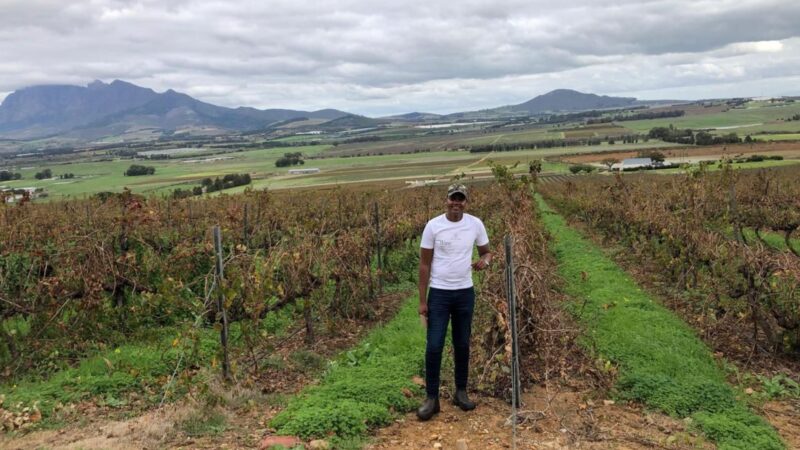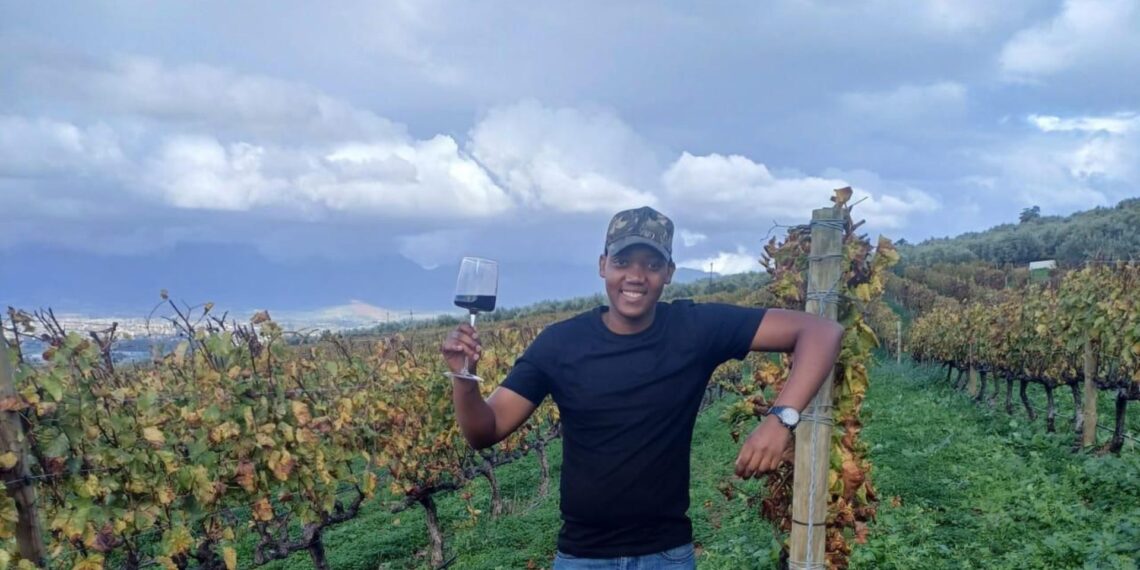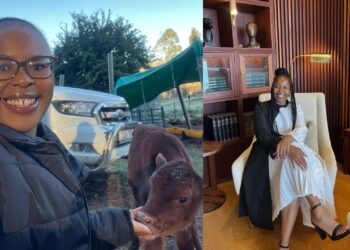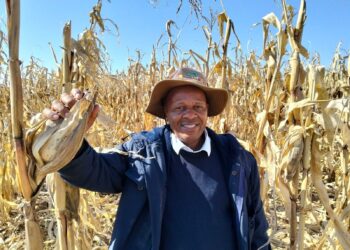In the Northern Cape town of Kuruman, Rethabile Kgatlhane shows how a small, close-knit team and strong partnerships can turn big dreams into reality. While many entrepreneurs start alone, the founder of Tipsy Twenties Winery chose collaboration.
With grapes sourced from the Cape Winelands, his boutique winery crafts limited batches with care and creativity.
“Although I’m based in Kuruman, I wanted to bridge two worlds, the artistry of the Cape and the authenticity of the Northern Cape. My dream has always been to prove that even if your roots are far from Stellenbosch, your dreams can still touch the vineyards of greatness,” he explains.
Growing up in a small village, Tzaneen, in Kuruman, Kgatlhane developed a passion for winemaking at the age of 18, alongside a lifelong love of writing.
From curiosity to creation
Kgatlhane says his journey began with a simple curiosity that soon blossomed into a deep love for wine. He recalls attending a small wine-tasting event where participants described the flavours of wine in rich detail: notes of lavender, berries, and oak. At that moment, he realised they weren’t just talking about a drink; they were describing a form of art.
“That moment shifted something in me. I realised wine isn’t just alcohol; it’s a lifestyle, a language, and a way of expression. That’s when I decided, if no one is making wine from Kuruman, then I’ll be the first.
“Of course, I didn’t wake up the next day owning a winery. I was still young, with a dream, a notebook, and curiosity. So I started slowly,” he shares.
Related stories
- Nederburg cellar workers to hone winemaking skills in France
- Finance meets farming: How Hlalele built a 300-hectare legacy
- SA’s wine industry eyes value over volume, new markets
- Young Limpopo scientist unlocks peperboom’s healing power
Kgatlhane attended Pitso Jantjie High School, and he dedicated himself to researching wine after school. He learned from anyone willing to teach him, embracing his dream, even when people initially laughed a little at his ambition.
He used to work as a manganese sampler at Kudumane Manganese Resource, saving every small amount he could.
“I didn’t come from a family with wine money; I built this dream with tiny steps, patience, and stubborn hope. Sometimes operations paused because funds or suppliers fell through, and I had to start again, rethink, and try differently.
This steady commitment and hunger for knowledge laid the foundation for his winemaking journey and marked the start of his business venture alongside long-time friends Morati Mogadile and Lesego Snyman.
🌱 Tell Us About Your Farm!
We want to provide you with the most valuable, relevant information possible. Please take a few minutes to complete this short, confidential survey about your farming practices and challenges. Your feedback helps us tailor our coverage to better support the future of agriculture across Mzansi.
Teamwork makes dreamwork
The team now had to focus on the heart of the business: the grapes. Kgatlhane was determined to find true quality, something that captured the magic he had experienced in the Cape Winelands, where the unique combination of soil and climate seemed to naturally create great wine.
Because of this, he had to spend a lot of time researching to find the growers who planted the high-quality grapes they needed, and the Cape Winelands proved to be the perfect place for sourcing their grapes and production during the harvest season.

From there, the team took charge of every aspect. “Together, we handle everything from sourcing to marketing. What makes it special is that we grew up together; we’ve seen each other fail, grow, and dream. So, the winery feels less like a business and more like a shared purpose,” he explains.
Their wine is made once a year during harvest season, with each batch carefully nurtured, fermented, and aged before bottling. On average, they bottle between 800 and 1 200 bottles per year, depending on grape availability and demand.
Tipsy Twenties Winery operates under the Kgatlhane Legacy Group, which also invests in publishing, business consulting, agriculture, and cosmetics.
Besides wine, the farms he works with produce a variety of crops, including vegetables and livestock feed, a diversity he aims to bring into his business. Adding to this unique portfolio, one of Tipsy Twenties’ special products is a lavender-infused gin, inspired by Kgatlhane’s fondness for lavender and crafted to offer a fresh, floral twist that complements their wine offerings seamlessly.
“There’s something calming and graceful about lavender, and I try to bring that same energy into my work: balance, calm, and beauty.”
Building a brand against the odds
Yet, despite this strong backing and creative spirit, the journey was far from easy. “We faced almost every challenge you can imagine, from unreliable grape suppliers to branding setbacks and financial strain. At some point, we had to pause operations completely. But I’ve learnt that pauses aren’t endings; they’re chapters in the story.
“Building a wine brand from a village, with no fancy winery or generational vineyard behind me. Everything took longer, required more faith, more creativity, and a whole lot of courage.
“But maybe that’s the beauty of it, it wasn’t handed to me. I grew into it, step by step, bottle by bottle, lesson by lesson,” he says.
However, when he looks back now, he doesn’t see struggle. Instead, he sees a young boy on a field trip who believes that dreams could start anywhere, even in dusty school shoes, miles away from the vineyards.
His courage and creativity have been recognised widely, earning him an award as South Africa’s Best New Wine Writer for 2025 after winning the SA National Wine Show Association competition with an essay questioning the value of numerous wine competitions.
He was also listed on WineLand Media’s 30 Under 30, which he described as an affirmation for young dreamers from small villages. He encourages others to start with what they have, saying that courage and creativity matter more than land or resources, and that every big brand began as a simple idea someone believed in.
“My biggest motivation is home, my family, my village, and every young person who’s ever been told their dreams are too big. I want them to see me and say, ‘If he can do it from Kuruman, so can I.’ That’s what keeps me moving,” Kgatlhane says.
ALSO READ: Free State farmers hit by rising seed theft

















